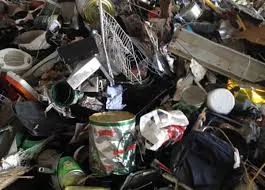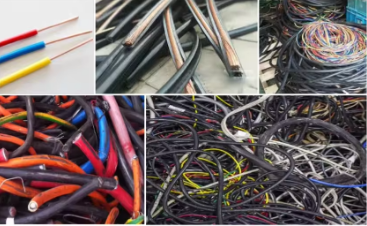Investing in an industrial metal shredder requires a careful evaluation of cost versus benefits, especially for businesses keen on optimizing their waste management strategies. Understanding the full financial implications, including purchase, operation, and maintenance, can demystify this essential business move. Below, we delve into the key aspects that influence the cost of industrial metal shredders, drawing from both expert insights and real-world enterprise experiences.

Industrial metal shredders play a pivotal role in recycling by processing scrap metal into smaller, manageable pieces. This not only saves space but also enhances the ease of transport and sorting, thereby increasing the value of the recycled materials. However, acquiring these machines involves several cost layers that require rigorous analysis.
Firstly, the initial purchase price of an industrial metal shredder can range vastly depending on its capacity, technology, and size. Basic shredders may start around $10,000, but high-capacity, technologically advanced models can reach upwards of $300,000. It's crucial to match the shredder's capacity with the volume of metal you're processing; overestimating can result in unnecessary expenditure, while underestimating might limit your operational efficiency.

Operational costs represent the next significant financial consideration. These include energy consumption, labor, and the cost of wear parts. Shredders are energy-intensive machines, and their efficiency often determines the ongoing expense. Newer models are increasingly designed with energy-efficient technologies, such as variable frequency drives (VFDs), which can substantially reduce electricity costs over time. Including energy consumption in your cost analysis can provide a clearer picture of long-term savings.
Labor is another critical factor. Operating a shredder requires skilled personnel to manage the machine and oversee the shredding process. Investing in proper training can ensure that the shredder functions optimally while minimizing downtime due to mechanical errors or mishandling. Thus, while training involves upfront costs, it pays dividends in sustained efficiency and reduced operational errors.
Maintenance and repair costs should also be factored into the total cost of ownership. Regular maintenance is essential for maximizing the lifespan of a shredder and maintaining its productivity. This can include routine inspections, part replacements, and lubrication of moving components. It's advisable to select shredders from reputable brands that offer robust warranties and reliable customer service, as these factors can alleviate the unexpected financial burden of repairs or replacements.
industrial metal shredder cost
Customization can also impact the cost. Many manufacturers offer custom solutions to address specific recycling requirements, allowing businesses to optimize the shredder for their particular materials and output expectations. Although customization adds to the purchase price, it ensures that the shredder fully meets operational demands.
To ensure a sound investment, it is advisable to conduct a detailed cost-benefit analysis. This involves assessing not only the direct expenses but also the potential revenue from selling processed scrap, efficiency gains, and environmental benefits. For instance, shredding capabilities can enhance recycling rates, contribute to sustainable practices, and even earn environmental compliance incentives in certain industries or regions.
Incorporating the insight and guidance of industry experts can significantly enhance your decision. Professionals with experience in metal recycling and machinery can provide critical advice on selecting the appropriate shredder model and configuration, forecasting operating expenditures accurately, and improving overall recycling strategies. Their expertise can be invaluable in negotiating with manufacturers or suppliers, securing the best deals or financing options.
Trust in product quality and manufacturer reputation is critical. Engage with suppliers who demonstrate transparency in their dealings and offer comprehensive after-sales support. Building a relationship with such suppliers can ensure consistent quality and service, essential for smooth operations.
Ultimately, investing in an industrial metal shredder is a strategic decision that extends beyond immediate cost considerations. By thoroughly evaluating the initial investment, operational expenses, and potential for return on investment, businesses can make informed decisions that bolster efficiency, sustainability, and profitability. With expert guidance and a strategic approach, metal shredders can prove not only cost-effective but also integral to long-term operational success.



